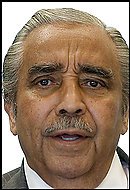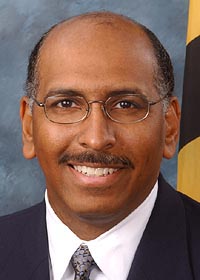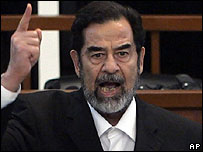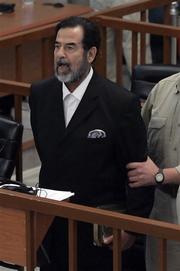Democrats Reject Key 9/11 Panel Suggestion
Neither Party Has an Appetite for Overhauling Congressional Oversight of Intelligence
It was a solemn pledge, repeated by Democratic leaders and candidates over and over: If elected to the majority in Congress, Democrats would implement all of the recommendations of the bipartisan commission that examined the attacks of Sept. 11, 2001.
But with control of Congress now secured, Democratic leaders have decided for now against implementing the one measure that would affect them most directly: a wholesale reorganization of Congress to improve oversight and funding of the nation's intelligence agencies. Instead, Democratic leaders may create a panel to look at the issue and produce recommendations, according to congressional aides and lawmakers.
Because plans for implementing the commission's recommendations are still fluid, Democratic officials would not speak for the record. But aides on the House and Senate appropriations, armed services and intelligence committees confirmed this week that a reorganization of Congress would not be part of the package of homeland-security changes up for passage in the "first 100 hours" of the Democratic Congress.
"I don't think that suggestion is going anywhere," said Rep. C.W. Bill Young (R-Fla.), the chairman of the Appropriations defense subcommittee and a close ally of the incoming subcommittee chairman, Rep. John P. Murtha (D-Pa.). "That is not going to be their party position."
It may seem like a minor matter, but members of the commission say Congress's failure to change itself is anything but inconsequential. In 2004, the commission urged Congress to grant the House and Senate intelligence committees the power not only to oversee the nation's intelligence agencies but also to fund them and shape intelligence policy. The intelligence committees' gains would come at the expense of the armed services committees and the appropriations panels' defense subcommittees. Powerful lawmakers on those panels would have to give up prized legislative turf.
But the commission was unequivocal about the need.
"Of all our recommendations, strengthening congressional oversight may be among the most difficult and important," the panel wrote. "So long as oversight is governed by current congressional rules and resolutions, we believe the American people will not get the security they want and need."
Now Democrats are balking, just as Republicans did before them.
The decision will almost certainly anger commission members, as well as families of victims of the Sept. 11 attacks, many of whom have pressed hard for implementation of the recommendations.
"The Democrats pledged to implement all the remaining 9/11 reforms, not some of them," said former representative Timothy J. Roemer (D-Ind.), who served on the commission.
Carie Lemack, whose mother was in one of the jets that hit the World Trade Center, echoed that sentiment: "It wasn't a Chinese takeout menu, the 41 recommendations. You have to do all of them."
Democratic leadership dust-ups this month severely limited the ability of House Speaker-elect Nancy Pelosi (Calif.) to implement the commission's recommendations, according to Democratic aides.
Pelosi strongly backed Murtha for House majority leader, only to see him soundly defeated by Rep. Steny H. Hoyer (Md.). That chain of events made it difficult for her to ask Murtha, a longtime ally, to relinquish control of the intelligence budget from his consolation prize, the chairmanship of the Appropriations defense subcommittee, according to Democratic sources.
Likewise, a controversy over the choice of a new chairman of the House intelligence committee proved to be a factor in the decision. The Sept. 11 commission urged Congress to do away with traditional term limits on the intelligence committees to preserve continuity and expertise, a recommendation the House implemented in 2003. But in her search for a reason to drop the committee's most senior Democrat, Jane Harman (Calif.), from the panel, Pelosi fell back on the tradition of term limits. She has decided to pass over the intelligence committee's second-ranking Democrat, Alcee L. Hastings (Fla.), as well.
To the Sept. 11 commission, the call for congressional overhaul was vital, said former New Jersey governor Thomas H. Kean (R), the commission's co-chairman. Because intelligence committee membership affords lawmakers access to classified information, only intelligence committee members can develop the expertise to watch over operations properly, he said. But because the panels do not control the budget, intelligence agencies tend to dismiss them.
"The person who controls your budget is the person you listen to," Kean said.
Those people, the appropriators, do not seem to care much, he said. The intelligence budget is a small fraction of the nearly $500 billion overseen by the armed services committees and the appropriations panels' defense subcommittees. Kean said that Sen. John McCain (R-Ariz.), an Armed Services Committee member, told the Sept. 11 commission that if his panel spends 10 minutes considering the intelligence budget, it has been a good year.
"We think this is extremely crucial," Kean said of a reorganization shifting budget authority to the intelligence committees. But, he added, there are "a lot of old bulls in both parties who just don't want to do it."
In 2004, the Senate tried to reach a compromise on the issue, proposing to create intelligence subcommittees under the House and Senate appropriations committees. The appropriators would maintain most of their power, but at least distinct panels would have to watch over intelligence spending.
The idea went nowhere in the House. To make it work, total spending on intelligence would have to be declassified, another commission recommendation that Congress has rejected. Besides, Young said, an intelligence subcommittee effectively exists in the form of the Appropriations defense subcommittee chairman and ranking member, who have taken serious interest in intelligence spending.
Democratic aides yesterday chose to talk up what they will do in the opening hours of the 110th Congress. Plans are not complete, but the incoming Democratic majority is likely to expand efforts to stop the proliferation of nuclear, chemical and biological weapons; ensure the interoperability of communications equipment so first responders can communicate more effectively; develop a comprehensive screening system for air cargo; and establish a civil-liberties board to protect the public against intelligence agencies expanding their reach.
Story Here
~~~~~~~~~~~~~~~~~~~~~~~~~~~~
We told you so sounds so appropriate right now. The Democrats ran on a HUGE amount of Promises that YOU Democrats voted for that they will NEVER be able to deliver on and you guy's swallowed this hook, line and sinker!


























































